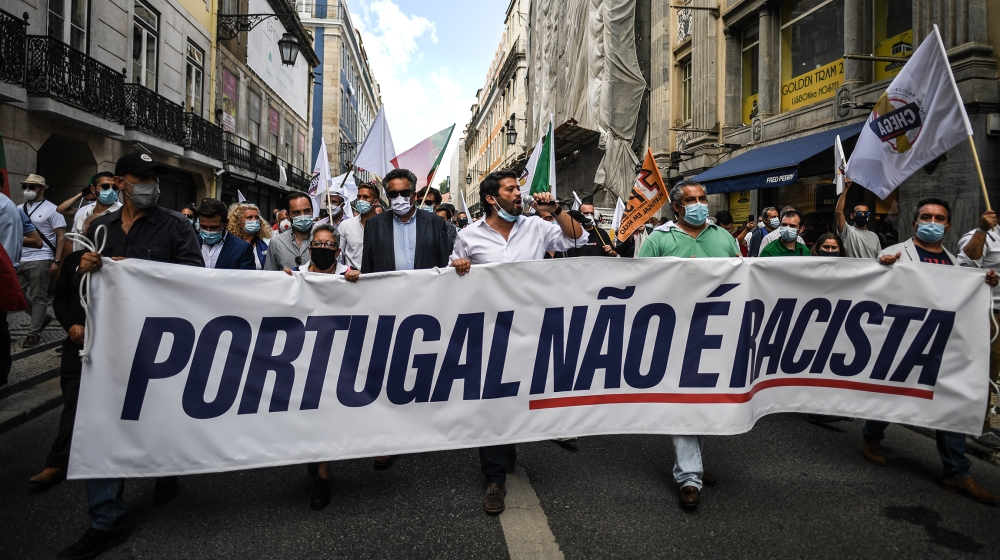
Portugal finds itself on the brink of political uncertainty as no single party clinched a majority in the recent weekend elections, leaving the far-right in a pivotal position. The aftermath of the election has placed the centre-right Democratic Alliance (AD) in the spotlight, expected to maneuver its way towards forming a government in the coming days. However, with just 79 seats secured, the AD falls significantly short of the 116-seat threshold required for a majority in the 230-seat parliament.
The resurgence of the far-right, particularly the anti-immigration party Chega, has added complexity to the political landscape. Chega’s remarkable surge, securing 48 seats compared to a mere 12 in the previous election, underscores a significant shift in Portugal’s political spectrum. Despite its considerable gains, Chega’s demands for participation in a right-wing coalition government have been met with resistance from AD’s leader, Luis Montenegro, who has categorically rejected any post-election alliance with the party, citing concerns over its xenophobic stance.
Analysts speculate on the potential challenges ahead for a minority government, with the passage of the 2025 budget emerging as a crucial litmus test. Javier Rouillet of ratings agency Morningstar DBRS warns of obstacles that may impede the legislative process, possibly leading to the prospect of snap elections. Meanwhile, Socialist leader Pedro Nuno Santos has affirmed his party’s stance as the opposition, signaling their readiness to contest the new government’s policies.
The election outcome reflects a growing disillusionment among voters with the traditional mainstream parties, as expressed by Faustino Lopes Baiao, a 70-year-old newspaper vendor in central Lisbon. The Democratic Alliance’s campaign pledges centered on revitalizing economic growth through tax cuts, contrasting with the Socialist Party’s warnings of potential austerity measures affecting social welfare programs.
Beyond Portugal’s borders, the election results signify a broader trend of far-right advancement across Europe. Chega’s ascent mirrors similar movements in countries like Italy, Hungary, and France, where far-right ideologies have gained traction in recent years. Established just five years ago, Chega’s emergence as a significant political force marks a historic shift, becoming the first far-right party to secure representation in Portugal’s parliament since the overthrow of the right-wing dictatorship in 1974.
As the dust settles on Portugal’s electoral landscape, attention now turns to the allocation of the remaining parliamentary seats representing Portuguese citizens abroad. However, the outcome of these results remains uncertain, with implications for the overall composition of the parliament.
The election, triggered by the unexpected resignation of Socialist Prime Minister Antonio Costa amidst an influence-peddling scandal, underscores the tumultuous backdrop against which Portugal’s political future unfolds. While Costa himself remained untainted by accusations, his decision to forego re-election has paved the way for a new chapter in Portugal’s political saga.
In conclusion, Portugal stands at a crossroads, grappling with the aftermath of a fragmented election outcome and the resurgence of far-right politics. As parties maneuver to form alliances and navigate the complexities of governance, the nation braces itself for a period of uncertainty and transition.
This website uses cookies.